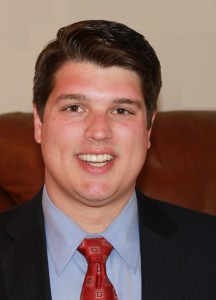DUI Sobriety Checkpoints in Washington State: Unconstitutional, and a Slippery Slope of State Constitutional Protections.
 The issue of DWI / DUI Sobriety Checkpoints in Washington State has become a hot legislative and legal issue. While checkpoints are used, to some degree, in 38 states, Washington State’s Courts have struck down such invasions into our privacy. While Washington’s State Constitution was the basis of the State’s Supreme Court’s most recent disapproval of checkpoints, the U.S. Constitution and federal case law has also been interpreted to prohibit law enforcement from check point stops.
The issue of DWI / DUI Sobriety Checkpoints in Washington State has become a hot legislative and legal issue. While checkpoints are used, to some degree, in 38 states, Washington State’s Courts have struck down such invasions into our privacy. While Washington’s State Constitution was the basis of the State’s Supreme Court’s most recent disapproval of checkpoints, the U.S. Constitution and federal case law has also been interpreted to prohibit law enforcement from check point stops.
The United State Supreme Court, whose decisions are binding on all lower courts in the county, has also weighed in rather forcefully against DUI checkpoints. In City of Indianapolis v. Edmond, the U.S. Supreme Court held that a checkpoint program whose primary purpose is to detect evidence of ordinary criminal wrongdoing violates the Fourth Amendment. 531 U.S. 32, 121 S. Ct. 447, 148 L.Ed.2d 333 (2000).
Citing Constitutional protections against unreasonable search and seizure, the Court stated, “there would be little check on the ability of the authorities to construct roadblocks for almost any conceivable law enforcement purpose. Without drawing the line at roadblocks designed primarily to serve the general interest in crime control, the Fourth Amendment would do little to prevent such intrusions from becoming a routine part of American life.”
Yet, many States have been able to fashion roadblock / checkpoint investigations that appear to survive legal scrutiny, and that is where Washington legislators seem to be trying to go. Our State’s legal precedent appears, however, to be a major road block to sobriety checkpoints. In City of Seattle v. Mesiani, written in 1988, the Washington State Supreme Court clearly ruled that the City’s sobriety checkpoint was not able to pass constitutional muster. However, the concurring opinion of Justice Dolliver and two other justices slightly muddled the legal precedent when they stated they “believe a sobriety checkpoint program, properly authorized by statute or ordinance, could be designed which would violate neither Const. art. 1, § 7, nor the Fourth Amendment.” City of Seattle v. Mesiani, 110 Wn.2d 454 (1988), 755 P.2d 775 (1988).
If a Washington law was to pass, Mesiani and Edmond both create high standards to lawful checkpoints. Edmond will require the State to prove the primary purpose of a checkpoint, and not merely by simply by calling it a sobriety checkpoint; the State will be required to prove that it was not a pretext and that the stated primary purpose of the checkpoint was, in fact, its actual primary purpose.
Furthermore, proof in DUI trials resulting from checkpoint stops will likely require the testimony of a policy making police official of high rank.
Before proceeding, the the legislature should seriously consider the caution of the Edmond court and our State’s history of protecting privacy rights.
Photo Credit: versageek via Flickr under CC License
 The Law Office of Brian M. Sullivan has offices in Everett, Lynnwood, and Kirkland, Washington with practice areas focussing on DUI Defense, Criminal Defense and Personal Injury Law. Each case is unique, so contact us today for a free consultation. You can connect with Brian M. Sullivan on Google +.
The Law Office of Brian M. Sullivan has offices in Everett, Lynnwood, and Kirkland, Washington with practice areas focussing on DUI Defense, Criminal Defense and Personal Injury Law. Each case is unique, so contact us today for a free consultation. You can connect with Brian M. Sullivan on Google +.
